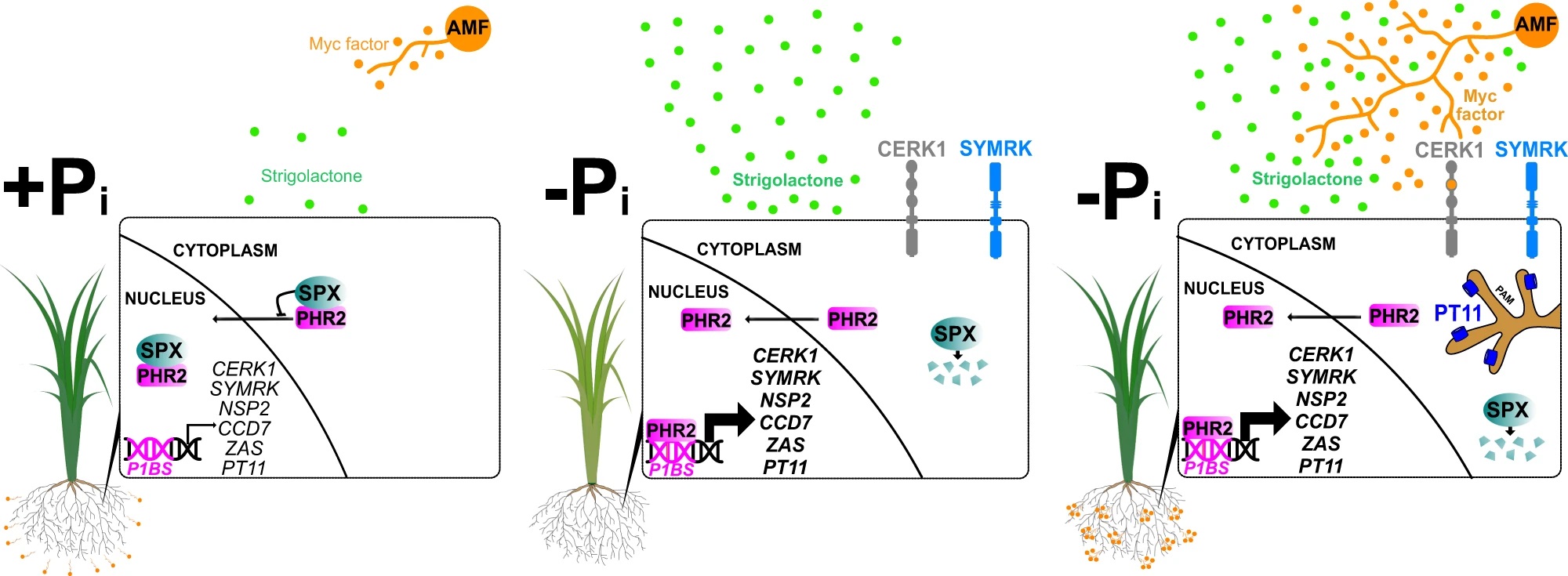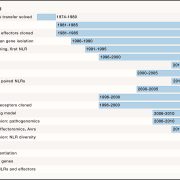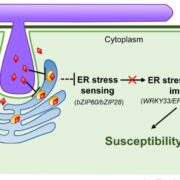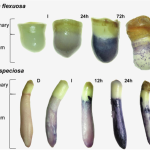Plants’ PHR2-controlled phosphate starvation response regulates fungal symbiosis in rice (Nature Comms)
 Plants’ interaction with microbes in the rhizosphere affects their health and productivity. Plant-arbuscular mycorrhiza (AM) fungi symbiosis is associated with almost 80% of land plants. The fungi provide phosphate, stress tolerance, and firmness to the soil in exchange for carbon. While low phosphate promotes AM symbiosis, the mechanistic basis of phosphate-dependent AM development remains obscure. Das et al. demonstrated the role of a MYB transcription factor, Phosphate Starvation Response (PHR) protein in rice that regulates AM development. They found that PHR2 is highly expressed in AM-associated plant tissues and its mutation results into decrease in colonization of the root cortex. Global transcriptomic and chromatin immunoprecipitation studies identified the putative PHR2 targets associated with pre-contact signaling, root colonization, and AM function. Additionally, the study of PHRs in the model legume (L. japonicas) showed that the PHR-mediated AM development might be conserved across the angiosperms. The findings of this study provide important insights into the regulation of AM by the plant phosphate status. (Summary by Chandan Kumar Gautam @chandan_gautam) Nature Comms. 10.1038/s41467-022-27976-8
Plants’ interaction with microbes in the rhizosphere affects their health and productivity. Plant-arbuscular mycorrhiza (AM) fungi symbiosis is associated with almost 80% of land plants. The fungi provide phosphate, stress tolerance, and firmness to the soil in exchange for carbon. While low phosphate promotes AM symbiosis, the mechanistic basis of phosphate-dependent AM development remains obscure. Das et al. demonstrated the role of a MYB transcription factor, Phosphate Starvation Response (PHR) protein in rice that regulates AM development. They found that PHR2 is highly expressed in AM-associated plant tissues and its mutation results into decrease in colonization of the root cortex. Global transcriptomic and chromatin immunoprecipitation studies identified the putative PHR2 targets associated with pre-contact signaling, root colonization, and AM function. Additionally, the study of PHRs in the model legume (L. japonicas) showed that the PHR-mediated AM development might be conserved across the angiosperms. The findings of this study provide important insights into the regulation of AM by the plant phosphate status. (Summary by Chandan Kumar Gautam @chandan_gautam) Nature Comms. 10.1038/s41467-022-27976-8









